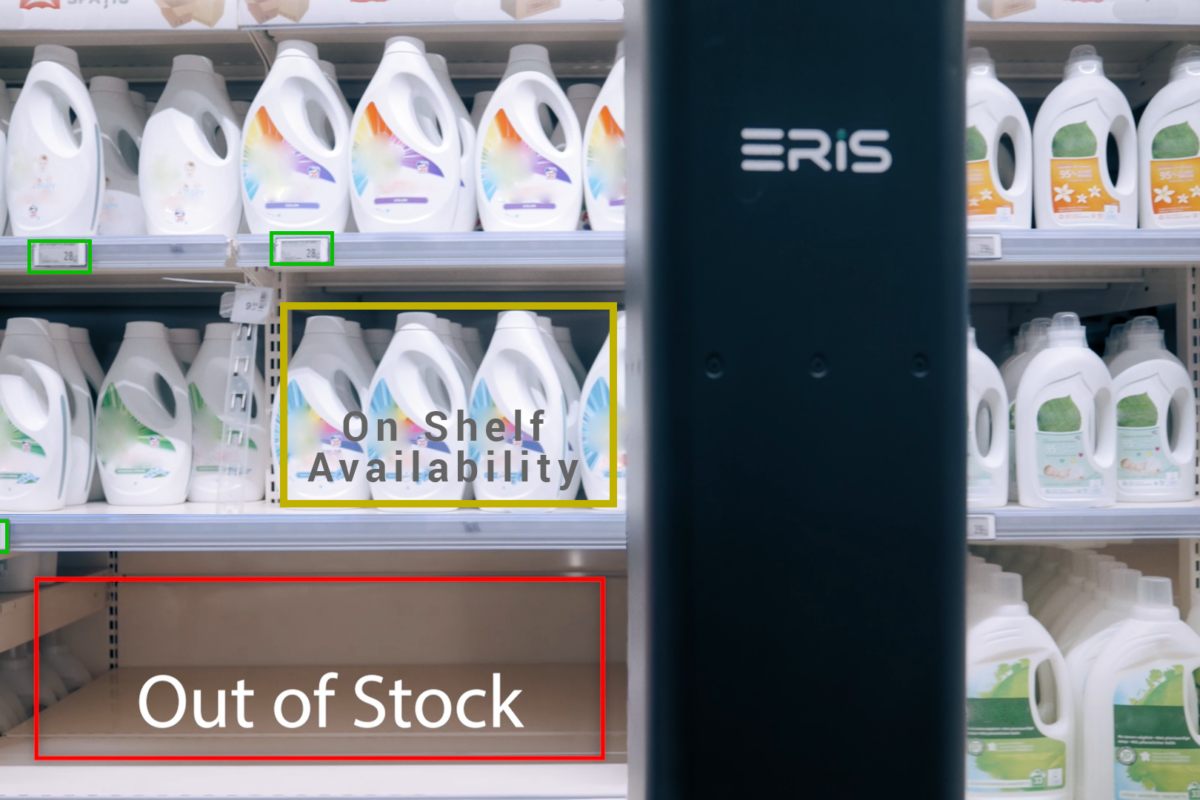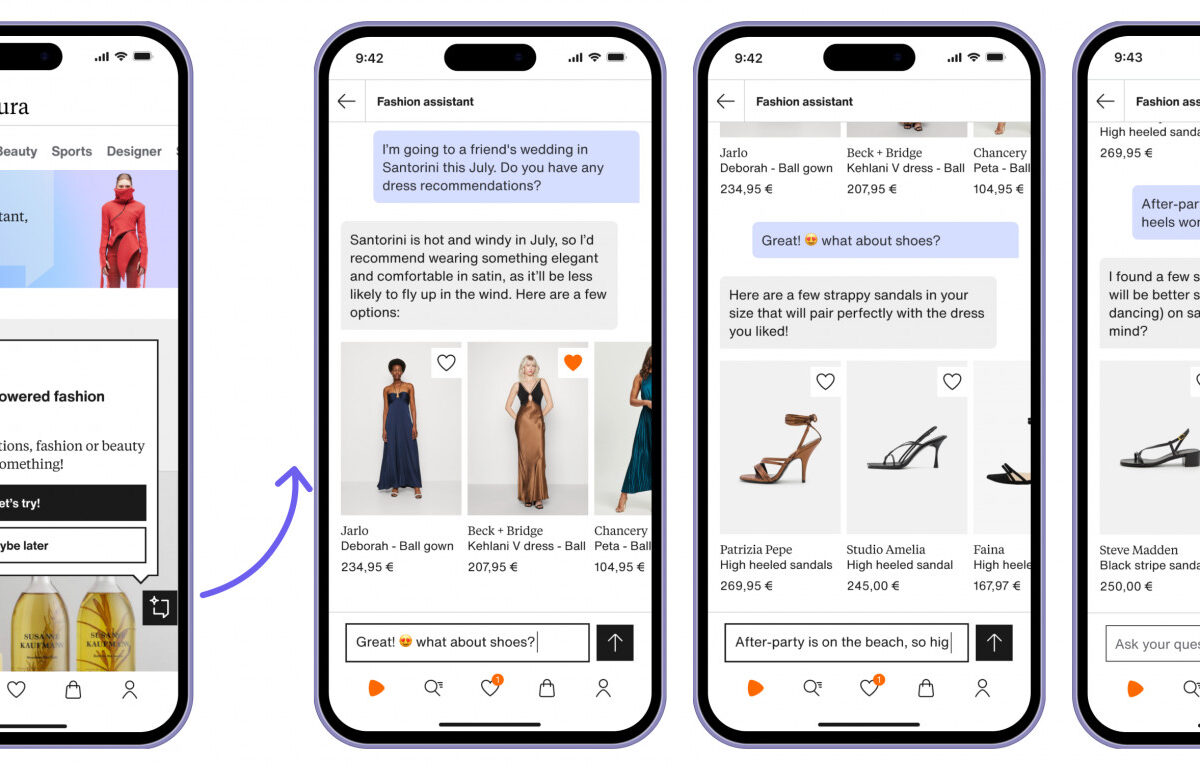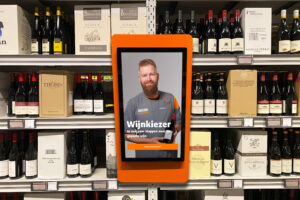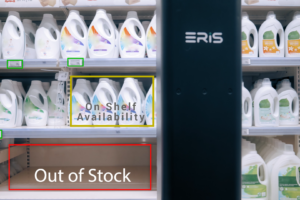“Other channels are no longer working”: Interview with Melikshah Ünver from Taledo
Skilled labor shortage, high turnover rates and the challenges of digitization: recruiting and hiring top-quality employees is especially difficult in the retail sector, particularly when companies must shake off a dull and dusty image. This is when businesses have to find new and innovative ways to find talent.
Some staffing and recruiting startups are committed to helping companies find employees in a more modern way by using a variety of different tools. Some promote a more regional approach and the optimization of job advertisements for companies. Others post job ads on more than 100 channels and then consolidate the job applications on a landing page. Social media channels like Xing, LinkedIn etc. are extensively used for searches and –most importantly- to build a strong business image. Networking and building a contact list are designed to sustainably boost the profiles and presence of companies.
Meanwhile, the future primarily lies in utilizing new technologies and making online search engines and websites more intuitive and efficient. On the one hand, this means making the applications more user-friendly and on the other hand, making it easy for search engines to actually find them. What’s more, from now on, artificial intelligence will also change the recruiting game.
We spoke with Melikshah Ünver, Founder and CEO of Taledo, the digital recruiting platform from Berlin. Since February 2017, it enables companies and job applicants to search for “the right one”. Between two appointments, the busy entrepreneur sat down with us to talk about the new way to recruit.
Melikshah, you strongly believe in the quality of your digital recruiting platform. What makes it so unique?
It’s quite simple: We use our technology, which incorporates artificial intelligence to collect data that traditional recruitment agencies simply do not have. We can track what the companies and candidates are doing on our website. We are able to detect if someone frequently clicks on Abitur (German higher education entrance qualification) grades in resumes for example. Clearly, that’s something the visitor is interested in. The technology subsequently allows us to suggest curated job candidates with a great Abitur qualification.
What is the technology behind it?
We have developed an algorithm that uses the data to accurately identify the best matches. It sorts the results, allowing the client to decide how he/she would like to proceed. This helps to make the right decision faster. It’s basically the same thing Google does.
How would you describe the “teamwork” between the technology and your recruiters?
The algorithm does the groundwork. Needless to say, we also have direct contact via phone and e-mail. Our most experienced team members personally decide who is relevant to our platform.
Does this process sometimes only happen in the digital realm?
Sometimes. That’s when clients tell us to send them an invoice because they already hired someone. Having said that, our clients generally involve us right from the first interviews. They ask us why a job candidate turned down a job offer for example. After all, the parties are typically not frank with each other but they tend to be honest with a third party. I personally have a headhunter, who looks for candidates for me because I believe that an independent third party is simply better suited to act as an agent.
Why do companies- among them many retailers- prefer to use your platform?
They prefer us because the other channels are no longer working. In all likelihood, they ran into the same problems as everyone else, namely that they have become unsexy and unattractive. Generation Y tends to emphasize the meaning and purpose of life. Job candidates simply prefer to go where they see more of that notion.
You say your recruiting platform makes companies look sexy. How so?
When Taledo says, “this is a cool company and we work with them,” it is way cooler than when a company that uses outdated methods does it. We simply have a better way of selling it.
What clients are interested in and best suited to use your platform?
The companies must be at least medium-sized or large. Our candidates have a minimum starting salary of 50,000 euros per year – even new job entrants. We don’t accept candidates below this salary range. We only do it for clients we think are really cool. But if I get the notion that they are struggling and unable to afford good people, I am not interested.
How much does your service cost?
Clients use us on an as-needed basis. Some customers pay 20 to 30,000 euros a month for our service. They consider salaried in-house recruiter to be more expensive. I think that most in-house recruiting networks of companies don’t work anyway. You also don’t need them if you only have to speed things up for six months. That’s where we offer customized deals and flat rates for clients. Sometimes they conduct the first interviews or we do, or something they log in, because they have a fixed flat rate for at least six months.
How is your business doing?
We used our own money to build the platform technology for three years. We are not profitable yet and spend a lot of money on marketing. However, 20 percent of effort and input have already yielded us 80 percent of output, while the commitment of our 80,000 job candidates is also steadily increasing. This indicates that our system seems to work. At this point, we have 42 people working here at our Berlin Alexanderplatz location. Of these, 20 act in a consulting capacity. Twelve colleagues are working on our algorithm and usability optimization full-time. One of my recruitment consultants already produces twice the results of a traditional recruitment consultant thanks to our technology. That’s why I am quite optimistic and certain that we don’t have much competition at the moment.
What is your general take on the German recruitment market?
The German recruitment market is still very ‘unsexy‘. You have a handful of top dogs and many small players. But hardly anyone has been able to make an upward move in the past few years because it’s so hard to gain a foothold in this field. The average placement fee for the major recruitment companies is around 25,000 euros, yet the quality of the average job candidate is still quite low. Today’s classic recruiters work the same way as recruiters did in the 1930s. Meanwhile, we are working in the future.
Interview: Natascha Mörs;
First published on: iXtenso – Magazine for Retailers




















